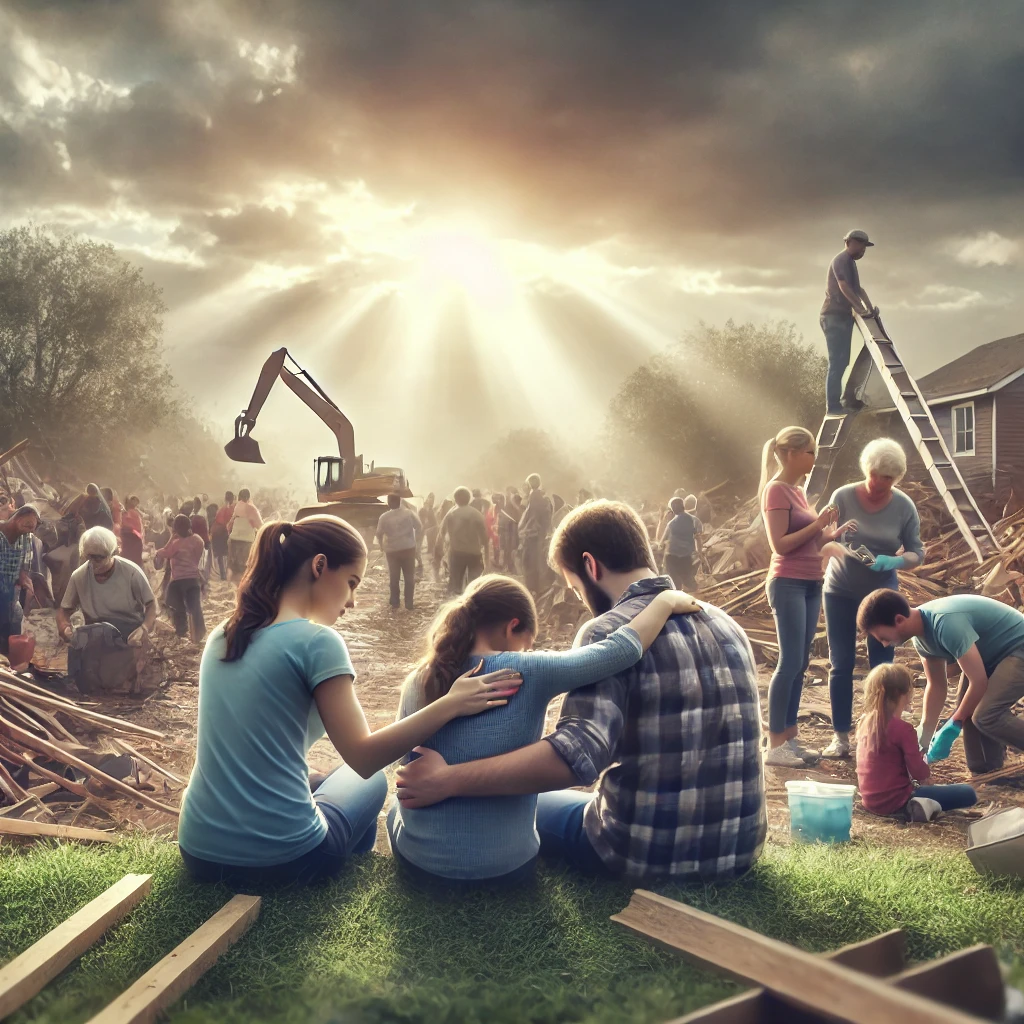No products in the cart.

After the Storm: Understanding the Mental Health Impact of Natural Disasters
Natural disasters can leave behind more than just physical destruction—they also take a significant toll on mental health. For those who experience hurricanes, wildfires, earthquakes, or floods, the emotional impact can be as challenging as the material losses. Understanding these effects and providing the right support is essential for helping individuals and communities recover.
The Immediate Emotional Response
In the aftermath of a natural disaster, individuals often experience a mix of emotions:
- Fear and anxiety: The sudden and unpredictable nature of disasters can leave people feeling on edge and hypervigilant.
- Grief and loss: Losing loved ones, homes, or belongings can lead to profound sadness.
- Shock and disbelief: Survivors may struggle to process what has happened, feeling disconnected or numb.
These reactions are normal, but when left unaddressed, they can develop into more severe mental health conditions.
Long-Term Mental Health Effects
For some, the emotional impact of natural disasters lingers long after the event:
- Post-Traumatic Stress Disorder (PTSD): Flashbacks, nightmares, and avoidance behaviors are common among disaster survivors.
- Depression: Feelings of hopelessness can arise from the immense task of rebuilding one’s life.
- Anxiety Disorders: Persistent worry about future disasters can interfere with daily life.
Children are particularly vulnerable to these long-term effects, as they may have difficulty understanding and processing their emotions.
Coping Strategies and Resilience
Recovering from a natural disaster requires more than material aid—it demands emotional and psychological support. Effective coping strategies include:
- Seeking support: Talking to friends, family, or counselors can help process emotions and reduce isolation.
- Establishing routines: Restoring a sense of normalcy through daily activities can provide stability.
- Practicing mindfulness: Techniques like deep breathing or meditation can help manage anxiety and stress.
- Focusing on small steps: Breaking recovery into manageable tasks can prevent feeling overwhelmed.
Community support also plays a vital role. Neighbors, schools, and local organizations can foster connection and a sense of shared purpose, which helps individuals feel less alone in their recovery journey.
The Role of Mental Health Resources
Mental health services are critical in disaster recovery efforts. Governments and non-profits must prioritize:
- Trauma-informed care: Training counselors to address the unique needs of disaster survivors.
- Accessible resources: Providing free or low-cost mental health services, including hotlines and mobile clinics.
- Support for children: Offering age-appropriate interventions, such as play therapy or school-based counseling.
Moving Forward
While rebuilding after a natural disaster takes time, addressing mental health needs is a vital part of the process. By prioritizing emotional recovery and fostering resilience, individuals and communities can emerge stronger, more connected, and better prepared for future challenges.
Sources:
- American Psychological Association – “Natural Disasters and Mental Health”
- National Institute of Mental Health – “Coping with Traumatic Events”
- Federal Emergency Management Agency (FEMA) – “Disaster Recovery Resources”



